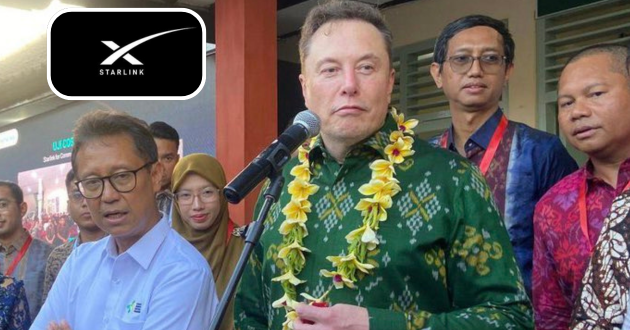Elon Musk and Indonesian Health Minister Budi Gunadi Sadikin inaugurated SpaceX’s satellite internet service for the country’s health sector on Sunday, aiming to enhance access in remote regions of the vast archipelago.
According to Private Media, Elon Musk, the billionaire head of SpaceX and Tesla (TSLA.O), arrived on the Indonesian resort island of Bali by private jet before attending the launch ceremony at a community health center in the provincial capital, Denpasar.
Elon Musk, wearing a green batik shirt, stated that the availability of the Starlink service in Indonesia would help millions in remote areas access the internet. The country is home to over 270 million people and spans three different time zones.
“I’m very excited to bring connectivity to places with low connectivity,” Musk said. “If you have access to the internet, you can learn anything.”
Starlink was launched at three Indonesian health centers on Sunday, including two in Bali and one on the remote island of Aru in Maluku.
A video presentation at the launch demonstrated how high internet speeds enable real-time data input to better address health challenges such as stunting and malnutrition.
When asked if he planned to invest in Indonesia’s electric vehicle industry, Musk said he was focused on Starlink first.
“We are focusing this event on Starlink and the benefits that connectivity brings to remote islands,” he said. “I think it’s really to emphasize the importance of internet connectivity and how it can be a lifesaver.”
For years, Indonesia’s government has been trying to attract Musk’s auto firm Tesla to build manufacturing plants related to electric vehicles, aiming to develop its EV sector using the country’s rich nickel resources.
The tech tycoon is scheduled to meet Indonesian President Joko Widodo on Monday, where he will also address the World Water Forum taking place on the island.
Communications Minister Budi Arie Setiadi, who also attended the Bali launch, said Starlink was now available commercially, but the government would prioritize its services for outer and underdeveloped regions.
Prior to Sunday’s launch, Starlink obtained a permit to operate as an internet service provider for retail consumers and had received approval to provide networks, having secured a very small aperture terminal (VSAT) permit, Budi Setiadi told Media.
SpaceX’s Starlink, which owns about 60% of the approximately 7,500 satellites orbiting Earth, dominates the satellite internet sector.











